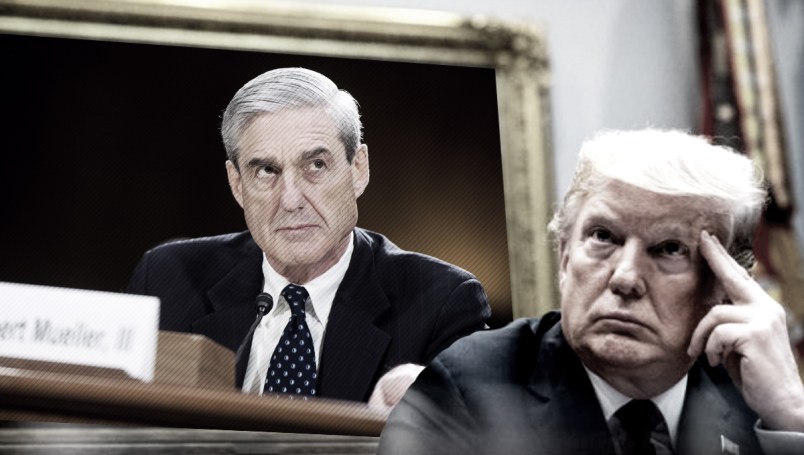President Trump might have successfully meddled in the investigations of Russian interference in the 2016 elections had his aides not continually refused to go along with his requests.
Special counsel Robert Mueller found multiple actions taken by Trump that were “capable of exerting undue influence over law enforcement investigations,” Mueller said in his redacted report released Thursday.
“The President’s efforts to influence the investigation were mostly unsuccessful, but that is largely because the persons who surrounded the President declined to carry out orders or accede to his requests,” the report said. Because of this, no obstruction charges against those around Trump were brought by Mueller beyond what he had already filed.
Mueller’s assessment came after he spent nearly 200 pages recounting the various episodes he uncovered in his obstruction of justice probe as well as the legal framework he used to analyze them. The report paints a far more damning picture than what Attorney General William Barr portrayed publicly when initially previewing of the report’s top-line conclusions.
In addition to his high-profile public attacks on the investigation and those leading it, Trump privately “engaged in a series of targeted efforts to control the investigation,” Mueller said.
Those efforts included “direct and indirect contacts with witnesses with the potential to influence their testimony.” They also include private episodes — some previously reported, some new — in which Trump sought to use intermediaries to fire Mueller and to pressure then-Attorney General Jeff Sessions to narrow the probes scope.
“Viewing the acts collectively can help to illuminate their significance,” Mueller said.
How Mueller describes the obstruction aspect of his inquiry is strikingly different than the tone Barr has taken while previewing the report. Barr has emphasized that many of the actions Mueller probed took place in public view, and stressed that a factor in his own determination that Trump’s conduct was not criminal was that Mueller had not established evidence proving the underlying collusion crime.
Mueller said that, despite the absence of evidence establishing Trump-Russia collusion, he did find evidence in the obstruction probe that pointed “to a range of other possible personal motives animating the President’s conduct.” Mueller said Trump’s actions were driven in part by uncertainty over whether other events during the 2016 campaign, such as his advanced knowledge of the Wikileaks email dumps or the June 2016 Trump Tower meeting, “could be seen as criminal activity by the President, his campaign, or his family.”
As for the public nature of certain Trump actions, Mueller acknowledged that the public nature of them makes a corrupt intent more difficult to prove.
However, he said, “the President’s power to influence actions, persons, and events is enhanced by his unique ability to attract attention through use of mass communications.”
“And no principle of law excludes public acts from the scope of obstruction statutes,” Mueller stressed. “If the likely effect of the acts is to intimidate witnesses or alter their testimony, the justice system’s integrity is equally threatened.”






